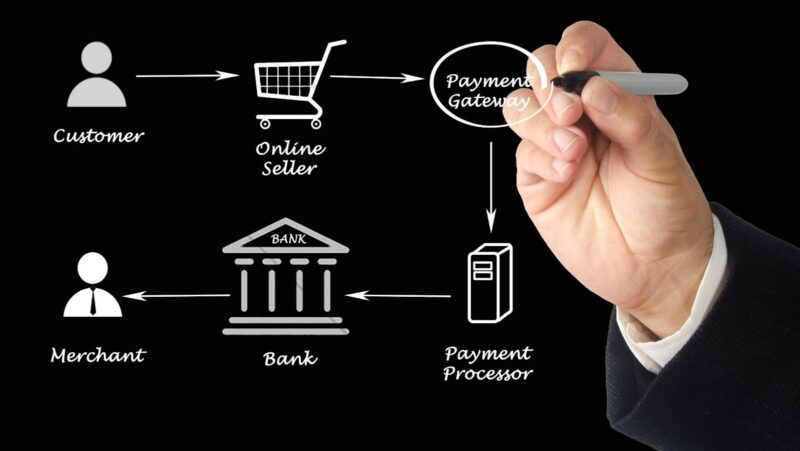
Overview
On Monday, the Senate voted overwhelmingly to advance the nomination of Alvaro Bedoya, a Georgetown law professor, to a seat on the Federal Trade Commission (FTC). This marks the first step towards Bedoya officially joining the FTC. After that, however, the nomination must go before the full Senate for a vote before Bedoya can be officially sworn into the Commission.
This article will provide a detailed overview of the full process.
Background of Alvaro Bedoya
Alvaro Bedoya is a professor of law and executive director of Georgetown Law’s Center on Privacy & Technology. He holds a J.D., an M.A., and a B.A. from Stanford University and also studied at the London School of Economics and Political Science as part of an OPE Fellowship through the U.K.’s Department for International Development.
Before joining Georgetown, Bedoya practiced with Arnold & Porter in Washington D.C., where he specialized in appellate, constitutional, regulatory, and complex civil litigation at both the trial and appellate levels on behalf of technology companies, banks, hospitals and universities, including Apple Inc., Barnes & Noble inc., Microsoft Corp., Cisco Systems Inc., Visa USA Inc.,
Amazon Inc., JPMorgan Chase & Co., AT&T Corporation, MediaOne Group Inc., Cigna Health Care Corporation, BlueCross BlueShield Association (BCBSA), Kennedy Krieger Institute/Johns Hopkins University School of Medicine, Montgomery County Public Schools Board of Education (Maryland), Earlham College (Indiana), The Taft School (Connecticut) among others. He was previously Chief Counsel to Senator Sheldon Whitehouse (D-RI) on the Judiciary Committee where he worked on antitrust policy.
While serving as a non-resident fellow at the Open Society Foundations’ Upturn project in December 2019 through January 2020, Bedoya published Privacy on Steroids: A Constitutional Debate over Legal Process Surveillance with professor Andrew Keane Woods at the University of Kentucky College Of Law after receiving funding from Google Digital Civics Open Fellowship program in 2019.
Bedoya has written extensively on privacy issues throughout his career including essays that have been published by The New York Times’ Room For Debate series; The American Prospect; The Hill; Ars Technica; Slate’s XX Factor blog; Just Security; the Stanford Law Review Online; The Yale Journal for Regulation Notice & Comment blog;Takeaways magazine by Harvard’s Shorenstein Center for Media Politics and Public Policy as well as SSRN working papers including ‘Political Brownouts: Understanding Diversity’s Invisible Codes’ which won him fellowship across several academic research institutes internationally including Nuffield Foundation and Lorenzo Natali Journalism Prize finalists which recognise media freedom globally.
Overview of the Federal Trade Commission
The Federal Trade Commission (FTC) is an independent agency of the United States government tasked with protecting American consumers from anti-competitive business practices. Established in 1914, the FTC aims to ensure that markets feature ample competition by prohibiting certain activities, such as cooperation between companies to depress or limit prices or production. The FTC also attempts to protect American consumers from deceptive and unfair trade practices, including those related to privacy and financial security.
The mission of the FTC is carried out by a group of five commissioners, appointed by the President and approved by Congress for seven-year terms. No more than three commissioners can be of the same political party at any given time, which helps ensure a fair and impartial enforcement of current laws and total objectivity in proposing new legislation. Alvaro Bedoya has recently been nominated for one of these positions on the commission and his nomination now proceeds to a final vote on the Senate floor.
Senate Advances Alvaro Bedoya Nomination to Federal Trade Commission
Alvaro Bedoya, who has repeatedly called for tech companies to step up their efforts against systemic racism, has been advanced by the Senate for a vote on his nomination to the Federal Trade Commission.
Bedoya is a Georgetown Law Professor and former Center on Privacy & Technology executive director. His nomination will now go to the Senate floor for the vote, and it is an important step forward in his journey to becoming a part of the FTC.
Let’s look deeper into why Bedoya’s nomination matters.
Overview of the nomination process
The United States Constitution establishes the procedure for nominating individuals for certain executive and judicial branch positions. Generally, federal appointments are made by the President of the United States with the advice and consent of a majority of the U.S. Senate.
After a nomination is officially made, it is reported to the Senate for consideration when it is in session. The majority leader guides a nominee through the nominations process and determines which committees have jurisdiction over them before the full Senate considers them. Once all necessary paperwork and security clearance requirements have been fulfilled, the nomination is placed on an executive calendar, which triggers the voting process in each chamber—the House of Representatives and ultimately the Senate.
Alvaro Bedoya’s nomination to fill one of three Federal Trade Commission (FTC) seats has been advancing through both chambers since President Joe Biden nominated him on April 21, 2021. Finally, on June 7, 2021, Bedoya’s nomination was advanced to a vote before the full senate. He was unanimously approved by both chambers’ respective committees on commerce, science and transportation for consideration for confirmation as FTC Commissioner for a seven-year term ending September 25 2027. As part of this confirmation process Bedoya must answer questions from senators during individually scheduled meetings before being approved by a simple majority vote.
If passed he would become its first Latino commissioner since Timothy Muris last held office in 2004 under President George W Bush; he would join Rebecca Slaughter who President Barack Obama appointed in 2014 as the only other sitting female commissioner alongside Rohit Chopra who was last voted onto FTC in 2018 under President Donald Trump.
Bedoya’s qualifications and experience
Alvaro Bedoya, nominated by President Joe Biden to serve as the Federal Trade Commission’s fifth commissioner, is widely respected for his groundbreaking work on using technology and massive databases to collect, aggregate, and mine data in the digital marketplace.
Bedoya most recently served as Executive Director of Georgetown Law’s Center on Privacy & Technology, where he pioneered research on the impact of rapidly advancing technology on law enforcement and civil rights. Before his time at Georgetown Law, Bedoya clerked for former Supreme Court Justice David Souter. He also practiced law in private practice specializing in complex civil litigation. In addition, he served as a law clerk to The Honorable Michael W. Fitzgerald of the U.S. District Court for the Central District of California.
Bedoya graduated from Harvard Law School with honors in 2011 and from Yale College with a B.A., magna cum laude in 2006. Bedoya has repeatedly testified before Congress about issues ranging from healthcare privacy to algorithmic transparency and racial profiling to targeted advertising practices online. His nomination was favorably reported unanimously by a 21-0 vote of members of the Senate Committee on Commerce, Science & Transportation earlier this year and now heads to the Senate floor for final approval by majority vote following debate among members representing all 50 states plus Guam and Washington DC.

Overview of the Senate vote
The U.S. The Senate has unanimously voted to advance Alvaro Bedoya’s nomination to the position of Commissioner at the Federal Trade Commission (FTC). The nomination now awaits a final vote by the full Senate.
If approved, Bedoya would be the 7th Commissioner, and first Latinx Commissioner, at the FTC—the independent agency tasked with promoting consumer protection and competition, and preventing anticompetitive business practices. His expertise—which has earned acclaim from legislators on both sides of the aisle—will be key in combating systemic injustices perpetrated by Big Tech companies, including algorithmic bias and privacy violations.
Bedoya has a demonstrated track record of advancing civil rights and economic justice in academics and practical applications. He currently serves as the founding executive director of the Center on Privacy & Technology at Georgetown Law, and before that he was chief counsel for Sen. Sheldon Whitehouse (D-RI).
Bedoya’s qualifications have been widely recognized by Democrats and Republicans alike in speeches provided during debate before today’s confirmation vote. With overwhelming bipartisan support, his nomination is expected to pass a final floor vote as early as this week. With a successful appointment, Bedoya will bring his wealth of experience in protecting consumers and promoting competition to help ensure that all Americans have access to an equitable digital economy where their data is secure against exploitation from Big Tech companies.
Impact of Bedoya’s Nomination
Alvaro Bedoya’s nomination to the Federal Trade Commission has been advancing through each process stage. After being approved in the Senate Commerce Committee, Bedoya’s nomination now heads to the Senate floor for a vote.
If voted through, Bedoya will have the privilege of being the first Latinx appointed to the Federal Trade Commission. Therefore, this vote will significantly affect Bedoya’s future and the Latinx community.
Potential impact on the FTC’s mission
With the advancement of Alvaro Bedoya’s nomination for Federal Trade Commission (FTC) to the US Senate floor, it is anticipated that Bedoya’s expertise will bring a constructive outlook that could significantly shape the FTC’s mission regarding consumer protection. As a pioneer in algorithmic accountability and privacy research, he holds key qualifications that equip him to deal with regulatory issues. In his previously held position as executive director of Georgetown Law’s Center on Privacy & Technology, Bedoya excelled at spurring conversation around privacy and data protection issues.
The increased shift towards new technologies has facilitated the supposed loss of private information. Moreover, it has raised concerns about how corporations can use this data and how it affects citizens’ general rights. Such events have urged consumers, officials, lawmakers and companies to recognize the potential implications of technological advancements on civil liberties consequently elevating Bedoya’s style of expertise within the orbit for top-level positions like one in FTC.
Bedoya stands out from traditional nominees primarily due to his years spent testifying before Congress, which may provide an additional layer of trust between experts with real and tangible understanding about consumer privacy issues, such as Bedoya himself, and lawmakers tasked with protecting their constituents from those same issues. Upon final appointment by the Senate floor vote, Bedoya will be poised to leverage his knowledge on consumer protection lawsuits while assisting fellow Commissioners on policy development related to technology-driven infringements such residential phone line slamming or identity theft developments. Ultimately, his appointment is expected to be beneficial in providing an apt platform needed for consumer-oriented changes within this agency.

Potential impact on consumer protection
The potential impact of Alvaro Bedoya’s nomination to the Federal Trade Commission (FTC) is far-reaching. As the Center on Privacy & Technology executive director at Georgetown Law, Bedoya has devoted his professional life to consumer protection. He is an expert in many aspects of privacy and technology, with a track record that reflects openness, transparency and commitment to fair competition.
The success of Bedoya’s confirmation would lay a strong foundation for reforming the organization to effectively protect consumers in an increasingly connected world. It could also signal a new era for global consumer rights movements by bringing together key privacy and data protection advocates.
Bedoya’s confirmation would also enable enforcement actions to tackle unfair or deceptive practices targeting vulnerable populations with data monopolies, creating opportunities where consumers are better informed about their choices in the digital economy and addressing any conflicts between existing antitrust laws and privacy considerations. For example, Bedoya has argued before Congress on issues such as algorithmic bias and net neutrality — both cited by regulators and scholars as having lasting impacts on consumer protection policies due to their ability to disproportionately impact certain demographics or violate their rights online — which could be strengthened if the Senate confirmed Bedoya.
Finally, it is important to note that if confirmed, Bedoya would be one of only two Democrats serving in leadership roles at the FTC — making him a crucial voice of reason when navigating issues such as regulating big tech companies, protecting consumer choice through anti-competitive practices or other areas where there may be opposing political views. In addition, he has a unique skill set that would bring practical solutions to complex problems and ensure fair outcomes for all consumers while maintaining industry competition.
Reactions to Bedoya’s Nomination
Alvaro Bedoya’s nomination to the Federal Trade Commission (FTC) has been favorably voted through by the Senate committee, sending it to the Senate floor for a vote. Bedoya’s nomination has generated much buzz and interest, as it could potentially make him the first FTC commissioner of Latino descent.
Supporters of Bedoya’s nomination have cheered the prospect of representing the Latino community at the FTC, while some opponents have expressed concerns about Bedoya’s background and qualifications.
Let’s explore the various reactions to Bedoya’s nomination.
Reactions from industry groups
Industry groups have issued a range of reactions to the Senate voting overwhelmingly to advance aerospace executive and former Obama administration official Alvaro Bedoya’s nomination to the Federal Trade Commission.
The Consumer Technology Association (CTA) applauded Bedoya’s advancement, with CEO Gary Shapiro noting that “his tremendous resume speaks for itself.” In addition, they lauded his “ keen understanding of technology, consumer trust and the laws modernizing our nation’s privacy protections today.”
Similarly, the Computer and Communications Industry Association (CCIA) highlighted Bedoya’s experience in consumer protection issues, as evidenced in his role as executive director of Georgetown Law’s Center on Privacy and Technology, noting he “could bring an important skill set to law enforcement at FTC.” They praised him as a candidate who “thoroughly understands how technology is transforming consumer privacy today for better or for worse, ensuring those changes are fair for consumers and fostering competition in digital markets. ”
On the other side however, FTC historian David Balto led criticism from consumer groups such as Consumer Watchdog who opposed his nomination due to reports that Bedoya previously served on Cardlytics’ Board of Directors while holding his top trade post within President Obama’s administration. In addition, the group pointed out that companies such as Cardlytics provide discounted products to consumers in exchange for purchasing data which third parties can use for targeted advertising campaigns, which have potential anticompetitive implications.
Reactions from consumer advocates
Consumer advocates have closely followed Alvaro Bedoya’s nomination to the Federal Trade Commission as his confirmation involves important antitrust questions affecting the tech and financial industries. Advocates have come out in favor of Bedoya’s nomination, citing his long-standing efforts to support consumer protection and pursue policies that lead to fairer marketplaces.
Oren Cass, an advisor for the Consumer Reports Action Fund which supports Bedoya, said in a statement that he is an ideal pick for this role with “significant experience in consumer law and policy, broad expertise on data privacy, a deep understanding of competition law, and an extensive record advocating on behalf of policyholders.” The Consumer Federation of America echoed this call for Bedoya to advance consumer protection rights saying “Bedoya is dedicated to considering innovative legal models to protect people and prevent corporate harms.”
Additionally, several large trade associations such as Public Citizen and The Americans for Financial Reform (AFR) released statements supporting Bedoya’s nomination due to his work protecting consumers from financial predation. They argue that without effective leadership at the FTC like Bedoya, it will be hard to “enforce existing rules,” thus leaving citizens vulnerable to predatory companies exploiting vulnerable communities or taking advantage of overworked citizens. In their statement AFR mentioned how essential it is for FTC leadership given how many scams exist today due to a scarcity of consumer advocates which often leaves consumers unprotected from exploitative organizations or practices.
Overall consumer advocates widely welcomed Bedoya’s nomination for FTC commissioner knowing that his experience fighting against corporate fraudsters has earned him highest marks among fair-minded legislators.

Next Steps
Recently, the U.S. Senate voted to advance the nomination of Alvaro Bedoya to the Federal Trade Commission. This marked an important milestone in officially appointing Bedoya to the FTC.
Now, the nomination will proceed to the Senate floor where it will receive a full vote from the Senate. Here, we will discuss the next steps in this process.
Overview of the confirmation process
The confirmation process of a presidential nominee to the Federal Trade Commission (FTC) requires approval from several offices and congressional bodies. Upon nomination, the Senate reviews an extensive questionnaire designed to uncover potential conflicts of interest, violations of ethics laws, or other issues.
Once this questionnaire is reviewed and sent to the relevant Senate committees for consideration. Both committees usually hold hearings where expert witnesses are called to provide input on the nominee’s qualifications. After both hearings, the committee can vote on whether to send the nomination forward to the full Senate for a vote.
The full Senate will then vote on whether they approve of him or her as a Commissioner, including a roll-call vote if senators want one. If approved by majority vote in both committees and a simple majority in the Senate floor, Alvaro Bedoya’s nomination has been officially confirmed and he is instated as a Commissioner at FTC.
Furthermore, once appointed and sworn-in at FTC commissioners serve seven year terms and cannot be removed by the President except through “good cause”.
Timeline for next steps
The timeline for the Senate to consider and vote on Alvaro Bedoya’s nomination to the Federal Trade Commission will likely take several weeks. However, it could be shortened or lengthened depending on whether a final vote is delayed or expedited by other items that come up for consideration.
After the nomination leaves the chamber, it will be referred to the Senate Fair Trade Commission (FTC) Committee for consideration. At this point, debate will occur, and members of the Committee can offer amendments or modifications on certain parts of the nomination package before voting. This can delay several days if not weeks, depending on schedule availability of Committee members and experts in question.
After Committee review, Bedoya’s nomination will head to ‘executive session’, where all Senators may debate and vote on the package. Debate may again be opened after calling of executive session if needed before it comes to final passage. A majority vote is required for confirmation; any senators have 10 minutes each (in total) after motioning for an amendment or change before putting it up for a roll call vote with 51 votes needed to pass. Suppose amendments or changes are made during executive session but not taken up beforehand in committee consultation. In that case, it can either add more time onto this process when discussed Floor of the Senate or potentially lead to additional committee review after the executive session.
Finally, once passed by the Senate chamber, it goes directly back to President Biden’s desk where he has authority to give his stamp approval and officially nominate Bedoya as FTC commissioner (assuming he gets an affirmative action). The whole process from start to finish can take several weeks; however certain parts like initial questioning/interviews may happen concurrently with others so as not to slow down the timeline more than is necessary. So all involved parties should keep a close eye on how quickly/slowly each step goes through to ensure individual interests are met at a later stage if needed.












